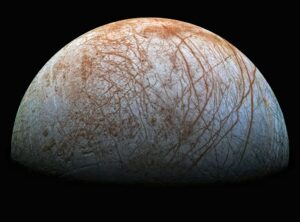What are the laws of Physics?
The laws of physics are considered fundamental, although many of them refer to idealized or theoretical systems that are hard to replicate in the real world. Like other fields of science, new laws of physics build on or modify existing laws and theoretical research.
What do the laws and theories of Science depend on?
Both laws and theories depend on basic elements of the scientific method, such as generating a hypothesis, testing that premise, finding (or not finding) empirical evidence and coming up with conclusions.
What is the law of gravitation in physics?
According to the law of gravitation, every object in the universe attracts every other object with a force that is directly proportional to the product of their masses and inversely proportional to the square of the distance between the masses.
physics theories of the universe
What is the theory of the universe?
The theory was originally offered to resolve strange quantum interpretation of particles and their wave-particle dual nature and causality principle. In many world theory, you are not living in just one space; rather, there are infinite transcripts of you in other worlds that may happen to have completely different behavior.
How has physics changed our understanding of the universe?
Since a century ago, new physics theories and ideas have led to many revolutionary results. Quantum mechanics and relativity theory and their profound concepts have not only changed our basic understanding of physics from domain of elementary particles to that of the whole universe.
What is quantum theory in physics?
(introduction) Quantum theory (otherwise known as quantum physics or quantum mechanics) is one of the two main planks of modern physics, along with general relativity, and between them the two theories claim to explain virtually everything about the universe.
What is the steady state theory of the universe?
The Steady State theory of the Universe Another theory about the Universe, called the Steady State theory, says that the Universe has always existed, and that the Universe is expanding and constantly creating matter as the Universe expands. This idea is supported by the red shift evidence, but not by the CMBR.
famous physics theories
What are the best books on the history of Physics?
A collection of twenty nine scholarly essays charting the history of physics from Galileo’s gravity to the age of silicon chips. Great Experiments in Physics: Firsthand Accounts from Galileo to Einstein Edited by Maurice Shamos. Dover, 1959/1987. This is one of my favorite science books, ever.
What is the most popular scientific theory?
One of the most popular scientific theories is Einstein’s Special Relativity, which explains the relationship between space and time for objects moving at a consistent speed in a straight line. The theory also explores a concept known as time dilation. Is a scientific law more accurate than a scientific theory?
What are some of the major branches of Physics?
Some of the major branches of physics are classical mechanics, quantum mechanics, theory of relativity and electromagnetism. Since physics covers a vast number of fields, most physicists specialize in one of the many subfields.



